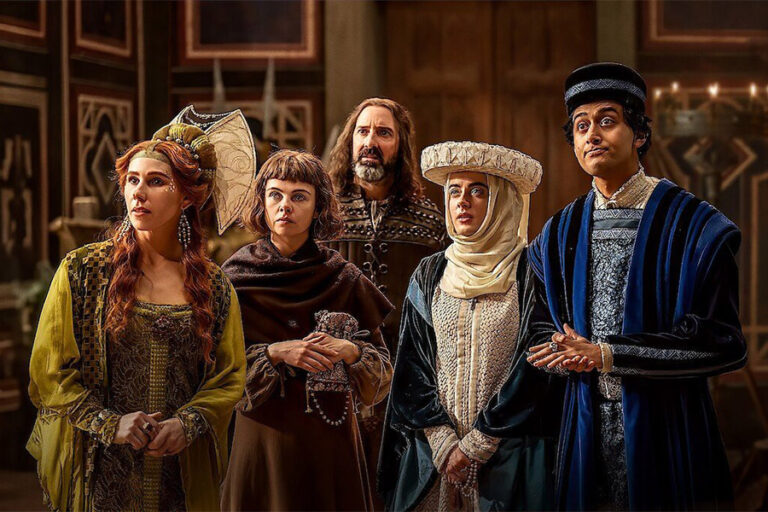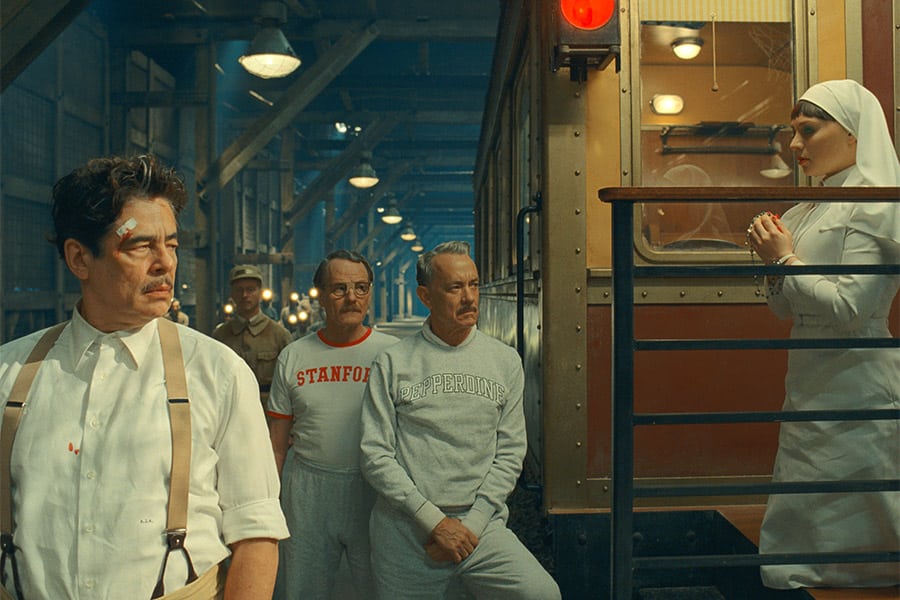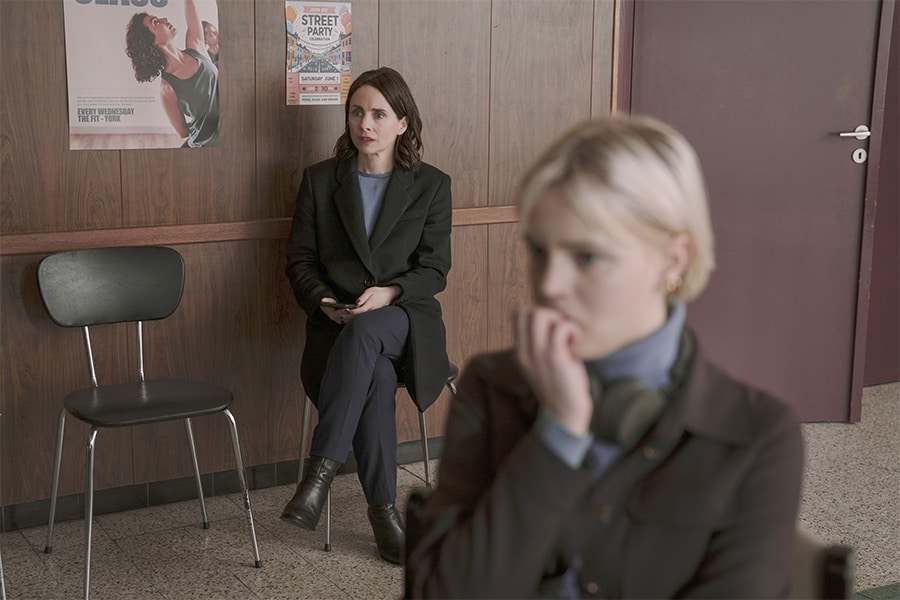NEW YORK (OSV News) – As is well-known, illiteracy was widespread during the Middle Ages. To judge by the characters who populate the limited-series television comedy “The Decameron,” however, so too was rank stupidity.
All eight hour-long episodes of the show, created by Kathleen Jordan, are currently streaming on Netflix. They should be shunned like the bubonic plague that provides part of the premise for the eponymous 14th-century collection of stories by Giovanni Boccaccio on which the program is ostensibly based.
To get away from the disease, an ensemble of Florentine nobles accept an invitation to stay at a countryside estate, the Villa Santa. Arriving there with some of their servants in tow, they discover that their host is temporarily absent. They’re cared for instead by Sirisco (Tony Hale), the steward of the household.
What the guests don’t know, but both Sirisco and the audience do, is that the domain’s owner has, in fact, succumbed to the rampant illness. That’s bad news for aging spinster Pampinea (Zosia Mamet) who was counting on him to marry her.
Pampinea’s faithful servant Misia (Saoirse-Monica Jackson) is virtually the only figure on screen who displays the slightest acquaintance with common sense. As the sole participant in the proceedings with whom viewers might possibly sympathize, it’s perhaps no surprise — given prevailing mores — that Misia is secretly accompanied on her journey by a lesbian lover.
As for all the rest, they serve as grotesquely caricatured personifications of various faults and eccentricities. Pampered Filomena (Jessica Plummer) is conniving and supremely selfish, traits that her long-suffering maid, Licisca (Tanya Reynolds), eventually finds a means of at least partially correcting.
Moronic man-boy Tindaro (Douggie McMeekin) carries hypochondria to absurd lengths, thus providing a steady living for Dioneo (Amar Chadha-Patel), the quack doctor who’s in constant attendance on him. As for seemingly happy husband and wife Panfilo (Karan Gill) and Neifile (Lou Gala), he’s a closeted homosexual while she’s hyper-pious in a perfectly idiotic way.
As reflected in Italian director Pier Paolo Pasolini’s 1971 artistic but unbridled big-screen version of Boccaccio’s tales, a bawdy celebration of fleshly indulgence may be assumed to come with the territory. Yet, while one scene in the two episodes screened for review does depict debased sexual activity, such waywardness is not, overall, the program’s most glaring defect.
The real problem is that Jordan’s script for these installments is painfully unfunny. The variety of foibles on offer are so exaggerated that they bear no resemblance to reality while the dialogue feels as though it might have been lifted from a skit made up by a preteen boy laboring under the illusion that he had a flair for humor.
Thus we’re meant to find it hilarious when Neifile falls into a well and, spurning Panfilo’s offer to help her out, insists on waiting for God to provide a miraculous means of rescuing her. Or when a trio of bandits breaks into the house and a slapstick battle ensues.
The medieval era may have been lacking in advanced science and medicine. But it’s the cultural shortcomings of our own time, including a contempt for the past, that serve to sabotage this chaotic, laugh-free retelling of an earthy, anti-clerical yet durable literary work.
Read More Movie & TV Reviews
Copyright © 2024 OSV News








